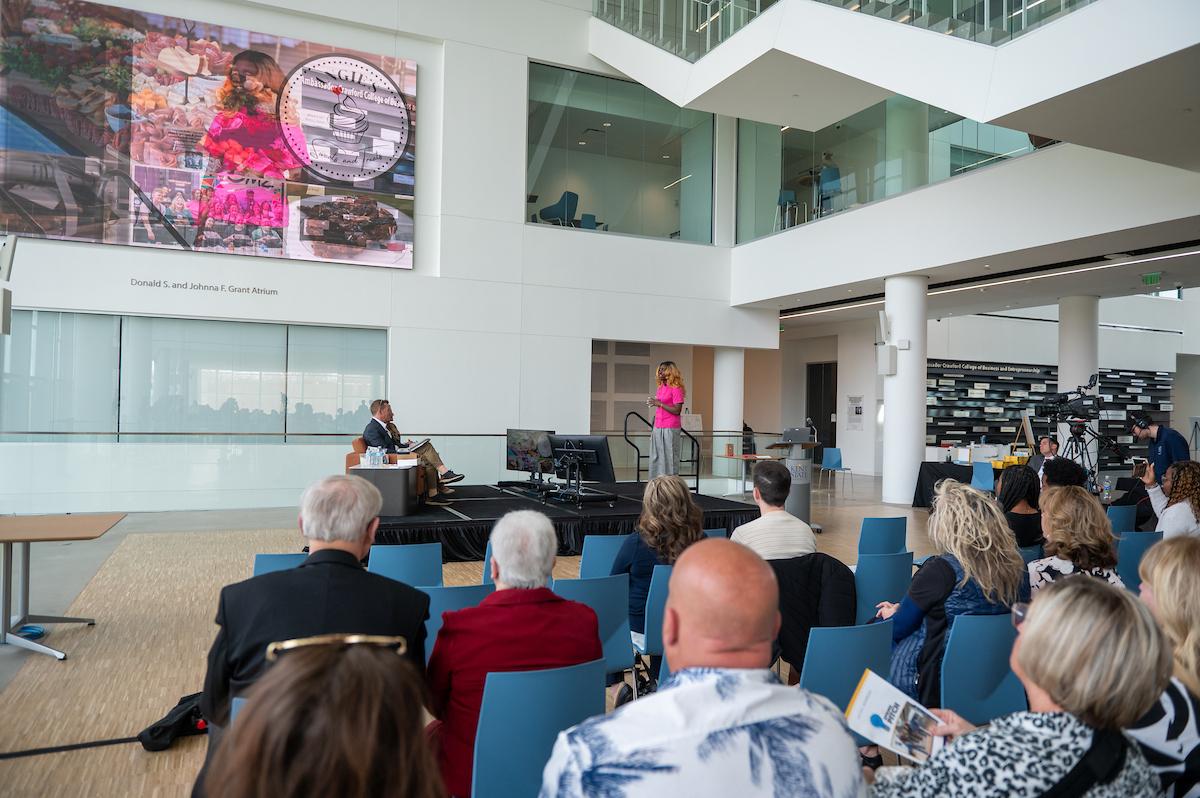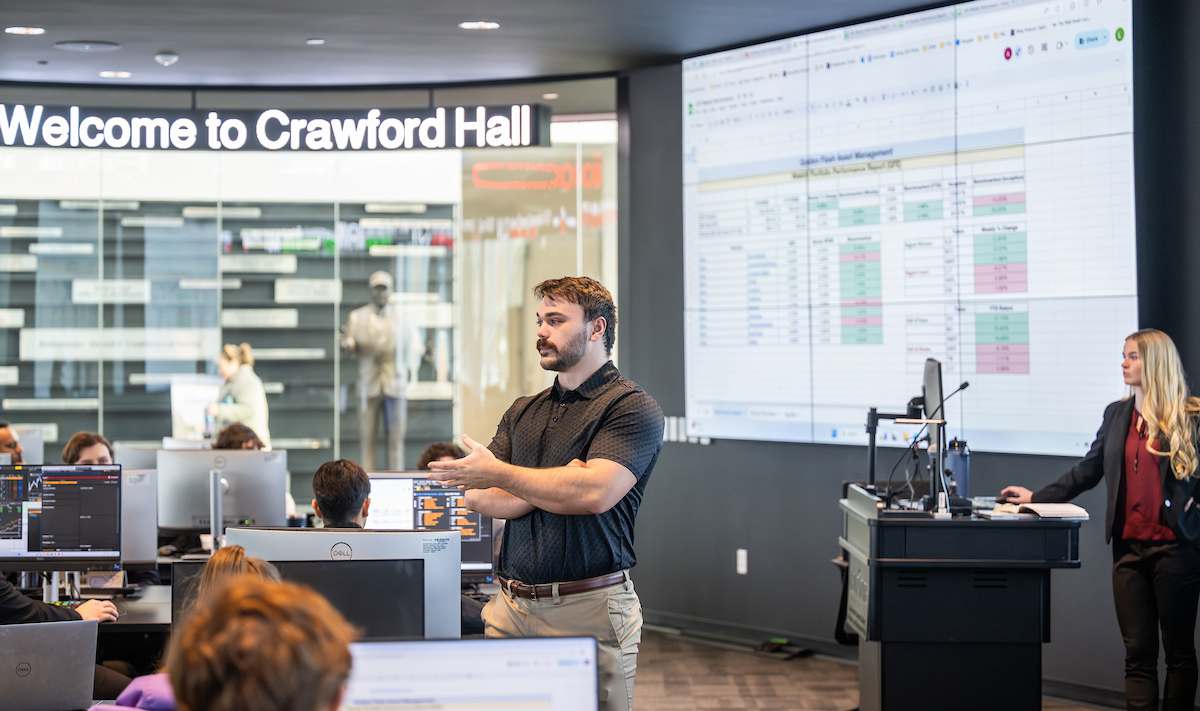51±ŹÁÏâs Ambassador Crawford College of Business and Entrepreneurship has been living â and thriving â inside its beautiful new home, Crawford Hall, for more than a year. Itâs a modern building filled with natural light, open spaces and state-of-the-art classrooms and labs. Every aspect of its design was carefully planned to provide an exceptional experience for students and prepare them with knowledge and skills that will give them a competitive edge in their careers after graduation.
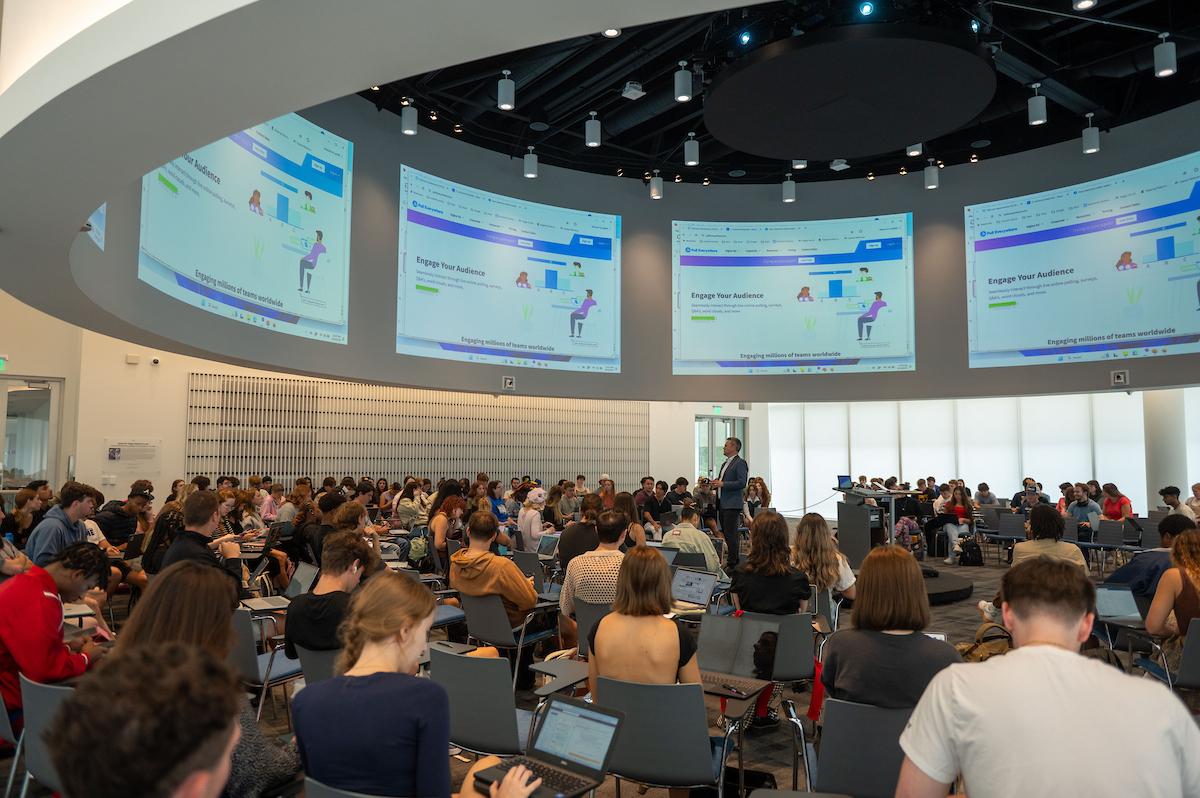
Building the Very Best Environment for Teaching and Learning
The collegeâs drive to continually provide students with the best, most current business education and technology inspired the construction of the new building.
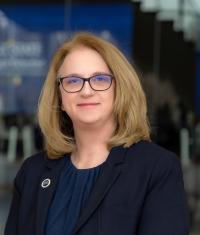
Deborah F. Spake, Ph.D., dean of the Ambassador Crawford College of Business and Entrepreneurship, said, âCertainly one of the arguments for support of the building that I made over the years was that we just couldnât deliver the kind of education we truly wanted until we had a different kind of facility. So, it was a compelling reason to our donors when they made contributions toward the building that we would, in turn, be able to have the most modern technology and the very best spaces to deliver modern business education.â
Spake said that the capabilities of the new building have helped the college add new coursework and programs. New laboratory spaces, in particular, were key. âOne is the Robert M. and Janet L. Archer Trading Lab, which is where financial education takes place,â she said. âIn that lab, students have the very latest financial analysis displays as well as Bloomberg terminals. Some of the coursework weâre now teaching is either enhanced because of the technology or the technology enables us to teach in ways that we just couldnât do previously.
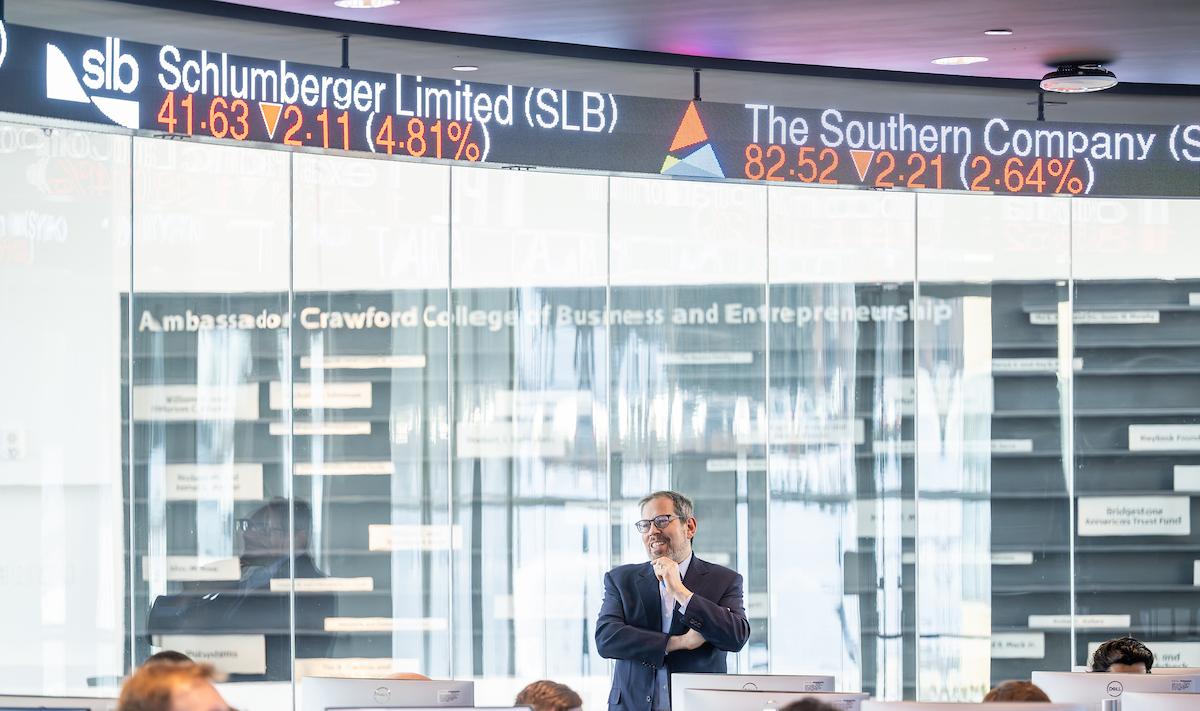
Continually Adding New Courses and New Programs
Having state-of-the-art technology and enhanced learning spaces also allows the college to be more agile in adding courses and programs to be ahead of business trends. âIt means a lot more because weâre changing our curriculum more often,â Spake said. âBecause the tools that are being used in the world of business are changing; 10 years ago, you would not have found a cybersecurity course, a cryptocurrency course or an artificial intelligence course in any business curriculum. But today, weâre able to offer those kinds of courses.â
Some of the new courses being offered are: Artificial Intelligence Tools for Business; Managing Cybersecurity; Fintech & Cryptocurrencies: The Future of Finance; Machine Learning and the Golden Flash Asset Management Group.
âThese courses use the new technology in the building and allow us to showcase some of our top students and faculty,â Spake said. âThey also touch on topics that would be of interest to new students, like AI, cybersecurity, financial management, fintech and cryptocurrency, or are experiential, like internships and the Golden Flash Asset Management łÒ°ùŽÇłÜ±è.â
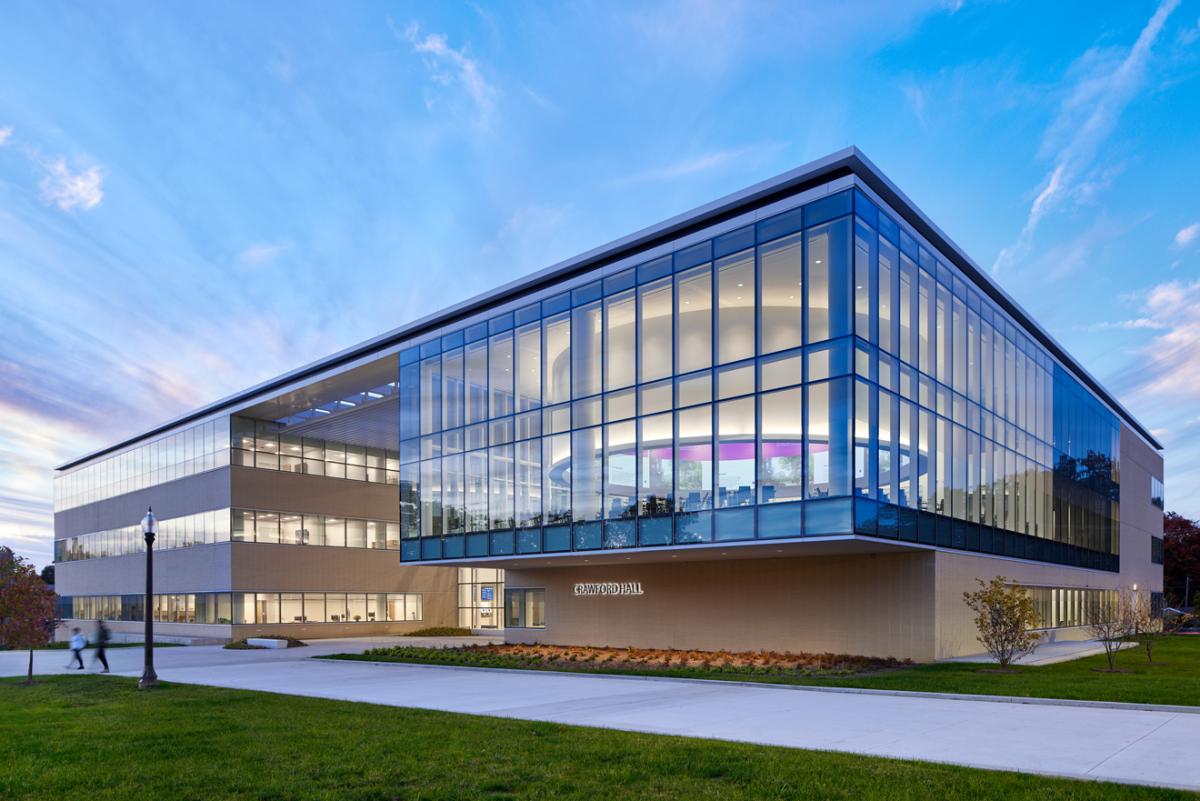
One of the new programs, pending final approval, made possible by the addition of new courses and technology, is a Master of Science in Accounting, Business Technology and Analytics.
'The Winningest Team in the Nationâ
The Golden Flash Asset Management Group is a point of pride in the college. This is a group of students who manage a real investment fund that they analyze in the trading lab. Using their initial funding, provided by the university and the 51±ŹÁÏ Foundation, theyâve been able to grow their investments and are currently managing $1.7 million in real money. Other business schools also have asset management teams and participate in national competitions, like the G.A.M.E. Forum in New York City. The 51±ŹÁÏ team has performed exceptionally well, Spake said.
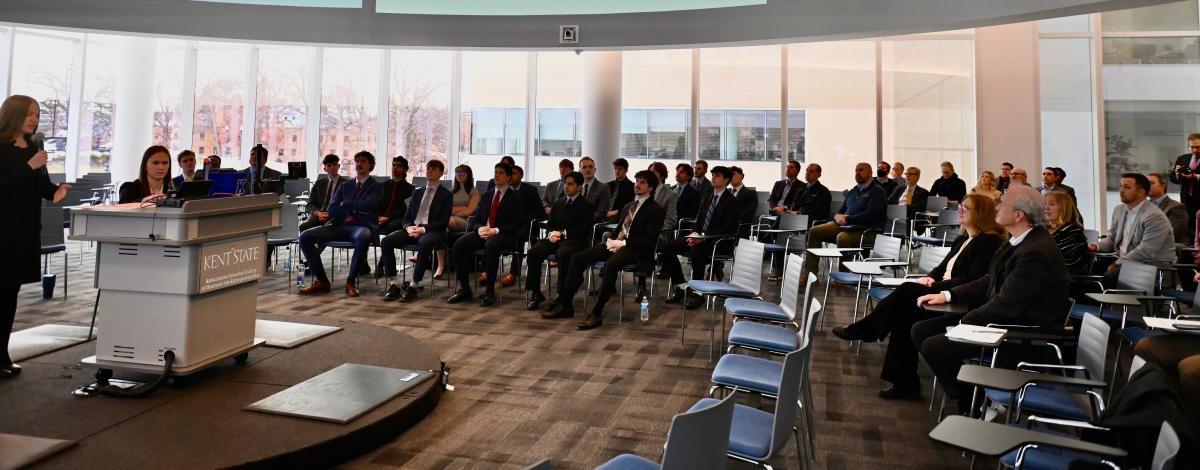
âThere are different categories or types of funds you can invest in, like a fixed income fund, for example,â Spake said. âIn the first year, the group took first place in the nation in the fixed income category. And every year, they have finished in either second or third place in a variety of categories. Sometimes, the team would have more than one recognition because they had done well in two different funds. At the moment, theyâre the winningest team in the nation, which weâre proud of.â
âIn the Future, Cryptocurrency Will Be Like Electricityâ
Albert Lloyd is a lecturer in the Ambassador Crawford College of Business and Entrepreneurship and is teaching several of the new courses being offered. He spent more than 25 years working in finance before retiring. After meeting people at the college, he decided to come teach at 51±ŹÁÏ.âKent is doing a great job of staying on the front end, the cutting edge, with these courses that are being offered. There arenât a lot of colleges out there embracing this right now. They should. Kent is one of the few,â he said. âSo, by offering these kinds of classes, Kent prepares their students for the future.
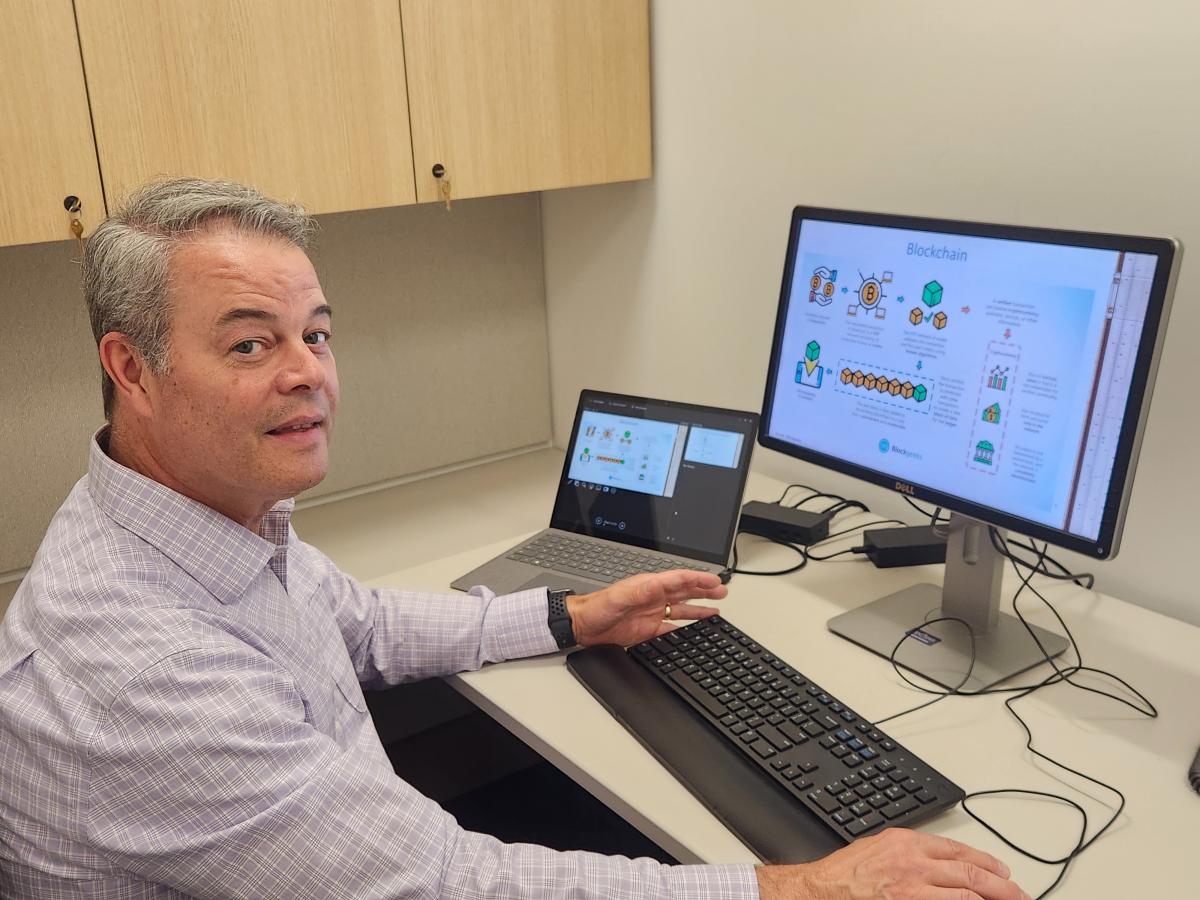
One of the leading-edge courses Lloyd teaches is called âFintech & Cryptocurrencies: The Future of Finance.â Fintech covers topics like machine learning, algorithmic trading and the tokenization of real-world assets, which includes cryptocurrency. âIn the future, cryptocurrency will be like electricity,â he said. âYou turn on a light and electricity is there. You donât really know how it works or why. Itâs just that it works. Cryptocurrency will be the same thing. It will be pervasive; it will be behind there, working all the time, being used every day, much like we use electricity now.â
Sometimes, the term âcryptocurrencyâ is used as a blanket term to describe what are actually several different currency systems. Lloyd explained that the key difference between Bitcoin and cryptocurrency is decentralization. Bitcoin is decentralized, spread across a network of thousands of nodes with no central point of failure. Other cryptocurrencies have a central point of failure, he explained. "If you take Ethereum, for example, the central point of failure is Vitalik Buterin, heâs the man. If something happens to him, I donât know what happens to the cryptocurrency. Ethereum probably continues on, but it takes a hit.â
Thereâs also stablecoin. âStablecoin complies like Tether or USDC, they have dollar-for-dollar backing,â Lloyd said. âItâs not supposed to change; itâs stable to the price of the dollar. What will end up happening is youâll have a stablecoin wallet on your phone and you probably wonât use dollars anymore, youâll use a stablecoin of some sort that is pegged to the dollar for transactions. Youâll find that organizations will probably use stablecoins to do transactions in the future.â

Preparing Students as Leaders
In Lloydâs class, students are presented with this question: "If you were presenting to an investor who had $10 million and wanted them to understand Bitcoin and cryptocurrency and the nuances and differences between the two, which one would you recommend they invest the $10 million in?" Each group has a different cryptocurrency to evaluate against Bitcoin. The assignment begins on the first day of class and the results, their presentations and recommendations are their final projects. âEverybody learns about Bitcoin as it relates to all these other cryptocurrencies, and they learn about the cryptocurrencies,â Lloyd said. âIt is a great way to create awareness about things that the other students have researched.â
Lloyd said that these are the kinds of experiential learning exercises that put 51±ŹÁÏ graduates ahead of their peers. âI think the No. 1 benefit is theyâre going to be more prepared, more so than students from other colleges that donât offer these kinds of classes,â he said. âWeâre prepared to lead, to go out there and go through the interview process. Can you imagine going to an interview and somebody saying, âWeâre really trying to figure out how to use stablecoins to transact,â and our student saying, âOh, I know all about stablecoins?ââ
âThey can talk to them about stablecoins, from taking a class like this, and help them learn more about it,â Lloyd said. âImagine how much further that puts them ahead of everybody else thatâs going in for an interview.â

New Building, New Energy
âHaving this building gives a very positive impression of the college,â Spake said. âEmployers know that we are producing students that understand new techniques and technologies.â
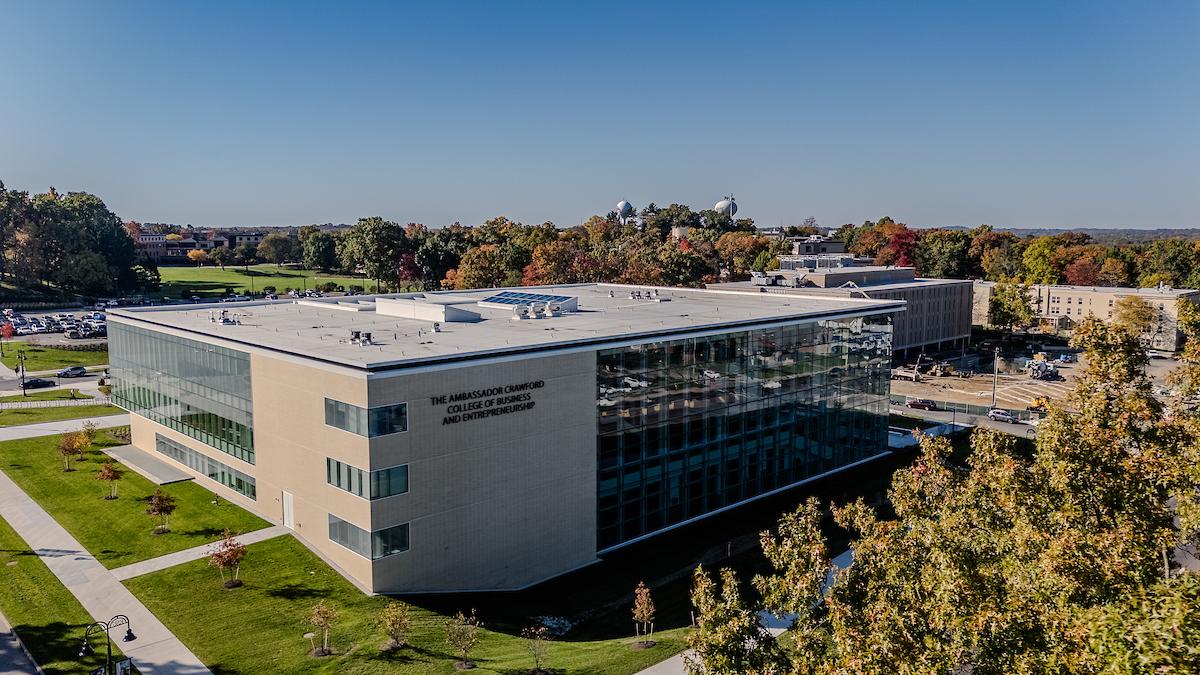
Employers see that 51±ŹÁÏ business students are âvery well prepared.â âTheyâve been exposed to the latest technology in their fields. And our students are proud to graduate from this college,â Spake said.
